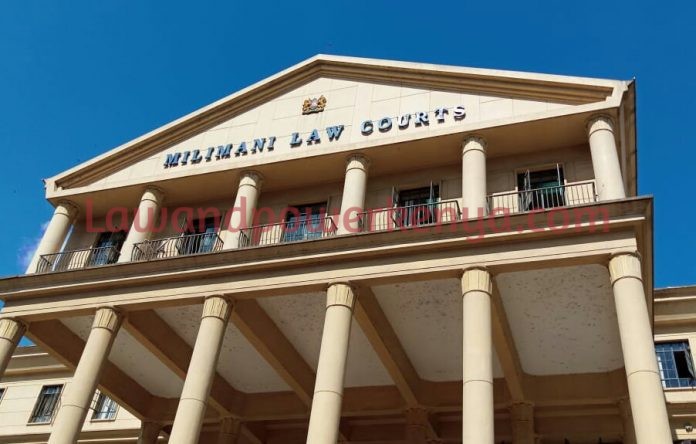The High court has ruled that the interests and penalties imposed on loanees by Higher Education Loans Board (HELB) are unconstitutional.
Justice Alfre Mabeya declared that section 15(2) of the HELB Act is unconstitutional to the extent that it leads to interest rates and fines becoming more than the principal amount advanced.
“Imposing interest amounts and penalties or fines that exceed the principal amount is in contravention of article 43(1)(e) and (f) and article 27 of the constitution,” Justice Mabeya ruled.
This is after three loanees moved to court to challenge the decision by the loans board to impose the interests and penalties.
The petitioners are Ann Mugure, Davis Nguthu and Wangui Wachira who borrowed loans from the board in 2004 and 2016 respectively.
Judge Mabeya further ruled that HELB is not entitled to recover from the petitioners or its loanees money exceeding double the amount advanced in contravention of the in duplum rule.
The petitioners argued that HELB has been charging exorbitant interests and penalties which often grew beyond double the principal amount owed thereby making repayment difficult.
They argued that on 19th November 2020, HELB through their twitter handle threatened to publish the names and photos in the newspaper of defaulters since 1975 and issued a 30 days repayment notice.
Mugure, who is a youth living with disability, claimed to have borrowed Sh 82,980 in July 2004 at an interest rate of 2 % and as of July 2016 the debt had accumulated to Sh 540,464.
Nguthu told the court that he borrowed Sh 146,000 in July 2016 and as of March 2021, the amount stood at Sh 335,207.
Wachira claimed to have borrowed Sh 135,000 in July 2016 and as of February 2021 the amount due was Sh 336,573.
The three argued that the debt had doubled the principal amount and that the interest rates and penalties were exorbitant and contravened the beneficiaries’ socio-economic rights as enshrined in the constitution and made it difficult for them to repay the loans.
They further told the court that the beneficiaries with non-performing loans were denied clearance which was necessary for job application thereby being denied employment opportunities in both public and private sectors.
“The respondent violated the constitution and law by charging of interest, fee and penalties and increased the debt to more than double the principal in contravention of section 44A (1) and 1(2) of the Banking Act, section 43 (1) c and (f) of the consumer right under article 46 section 1 of the constitution,” the petitioners argued.
The court heard that the non-performing loans were due to the hefty interests and penalties whereas most beneficiaries were youth who are considered a vulnerable group under article 55 of the constitution.










